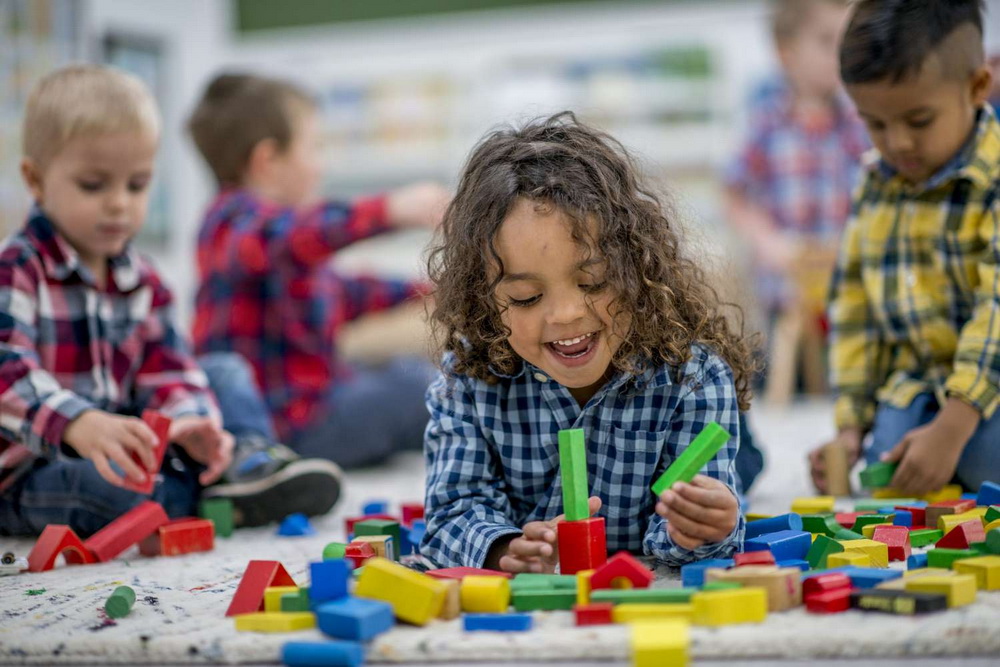Play is the most natural way for children to learn, to grow and to feel that they belong to a safe world. However, in order to be adventurous, to explore, and get curious about new things, a child needs to feel safe that he/she can make mistakes; that the adults around them have a flexible – enough mind to handle anything and everything.
So much depends on our ability to play, as adults, or better yet, to be playful.
Here’s what the experts say:
“Play is its own reward, and is deeply satisfying to your child. It is no trivial pursuit, however. It builds your child’s intellect, judgement, strength, coordination, and character. In fact, play is so vital to children’s development that the United Nations Commission on Human Rights has declared it an inalienable right.” ( LISTEN, book by Patty Wipfler & Tosha Schore)
“If we don’t play, we miss out on more than fun. Play is where children show us the inner feelings and experiences that they can’t or won’t talk about. We need to hear what they have to say, and they need to share it. That’s why we need to join children where they live, on their terms. Children don’t say , “I had a hard day in school today; can I talk to you about it? “. They say, ‘Will you play with me?”. If we say yes, they play out what happened in the best way they know how. Or they don’t say anything, needing us to take the initiative. By the end of the game, we may have helped them boost their confidence and their inner feeling of being loved – just what they need to go back to school and solve the problem themselves. If they don’t think we will play, they may not even ask. They will go about their business, and we will go about ours, and we will all miss chance and chance to reconnect.” (PLAYFUL PARENTING, book by Lawrence J. Cohen, PhD)
If you forgot how to play, it is not your fault.
A very long time ago, when you were a child yourself, you needed to silence that part of you to survive, to feel safe, to protect yourself. You had to grow up really fast, before you were ready. Most adults who stopped playing as children, did so because (this list can be much longer):
- they had a depressed/ anxious / substance or alcohol dependent parent, or both;
- they had a parent with a severe illness, or mental health diagnosis;
- they had a high conflict home environment;
- they endured abuse (physical, sexual, psychological);
- they had a narcissistic parent, or both;
- they moved around a lot;
- they were shamed when they made a mistake;
- they were constantly compared to their siblings or other kids;
- they had divorced parents who were high- conflict post- divorce.
What can you do now?
- start exploring why you can’t play, with a coach or a therapist;
- consider taking the STARTER CLASS ONLINE (6 weeks) from Hand in Hand Parenting; check availability on their website;
- consider enrolling in my CONSCIOUS PARENT ACCELERATOR PROGRAM;
- read the 2 books I mentioned above;
- work with me 1:1.
Nobody can go from “I forgot how to play” to being a playful parent overnight, without help. I was lucky to have amazing mentors when I did my Hand in Hand Parenting certification training ( 1 year long) and with their help, I worked constantly on developing my ability to show up as a playful & flexible parent. I have infinite gratitude to Hand in Hand Parenting.
Please, remember – children cannot be “commanded” to trust us. TRUST is everything in relationships, and kids are no different. Trust comes from safety; safety comes from connection; connection requires a flexible, present and self-regulated adult.
What is your relationship to being playful with your children? Do you feel playful as an adult? Do you have a hard time playing, and being silly? Do you have a hard time to let go of control when playing? DM-me, message me, let me know.
